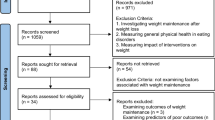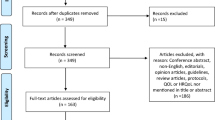Background: The Moorehead-Ardelt Quality of Life Questionnaire was originally developed as a disease-specific instrument to measure postoperative outcomes of self-perceived quality of life (QoL) in obese patients. 5 key areas were examined: self-esteem, physical well-being, social relationships, work, and sexuality. Each of these questions offered 5 possible answers, which were given + or - points according to a scoring key. The questionnaire was used independently or incorporated into the Bariatric Analysis and Reporting System (BAROS). The instrument is simple, unbiased, user-friendly and can be completed in <1 minute. It has been found useful, reliable and reproducible in numerous clinical trials in different countries. Further research and feedback from some of its users prompted refinements, now included in the Moorehead-Ardelt Quality of Life Questionnaire II (M-A QoLQII). This study tested the validity of the improved instrument. Methods: The wording of the questions was changed, to make them less suggestive and allow for the use of the survey before and after medical intervention, and with control groups. A 6th question, analyzing eating behavior, was added. The ±1 point given to the evaluation of self-esteem was split with this new question, thus maintaining the consistency of the scores. The drawings were simplified. Finally, the scoring key was changed to a 10-point Likert scale, to improve response-differentiation. To validate the M-A QoLQII, we examined its concordance with other health and well-being indicators, specifically the MOS 36-Item Short-Form Health Survey (SF-36), the Beck Depression Inventory-II (BDI-II) and the Stunkard and Messick Eating Inventory. The study population included 110 morbidly obese patients (20 males, 90 females, mean BMI=50), participants of gastric bypass support groups. Reliability of the M-A QoLQII was determined using Cronbach's alpha coefficient. Construct validity was measured by conducting a series of Spearman rank correlations. Results: A Cronbach's alpha coefficient of 0.84 indicated satisfactory internal consistency. The M-A QoLQII was found to be significantly correlated (P <0.01) to 7 of the 8 SF-36 scales: Physical Role (r=0.357), Bodily Pain (r=-0.486), General Health (r=0.413), Vitality (r=0.588), Social Functioning (r=0.517), Emotional Role (r=0.480), and Mental Health (r=0.489). The questionnaire also significantly correlated (P <0.01) to the Beck Depression Inventory-II (r=0.317), as well as to the 'Disinhibition' (r=-0.307) and 'Hunger' (r=-0.254) factors of the Stunkard and Messick Eating Inventory. Conclusions: The M-A QoLQII correlates well with other widely used health and well-being indicators such as the SF-36, Beck Depression Inventory II and the Stunkard and Messick Eating Inventory. The study established the validity and reliability of this improved disease-specific instrument for QoL measurement in the obese population.
Similar content being viewed by others
Author information
Authors and Affiliations
Rights and permissions
About this article
Cite this article
Moorehead, M.K., Ardelt-Gattinger, E., Lechner, H. et al. The Validation of the Moorehead-Ardelt Quality of Life Questionnaire II. OBES SURG 13, 684–692 (2003). https://doi.org/10.1381/096089203322509237
Published:
Issue Date:
DOI: https://doi.org/10.1381/096089203322509237




